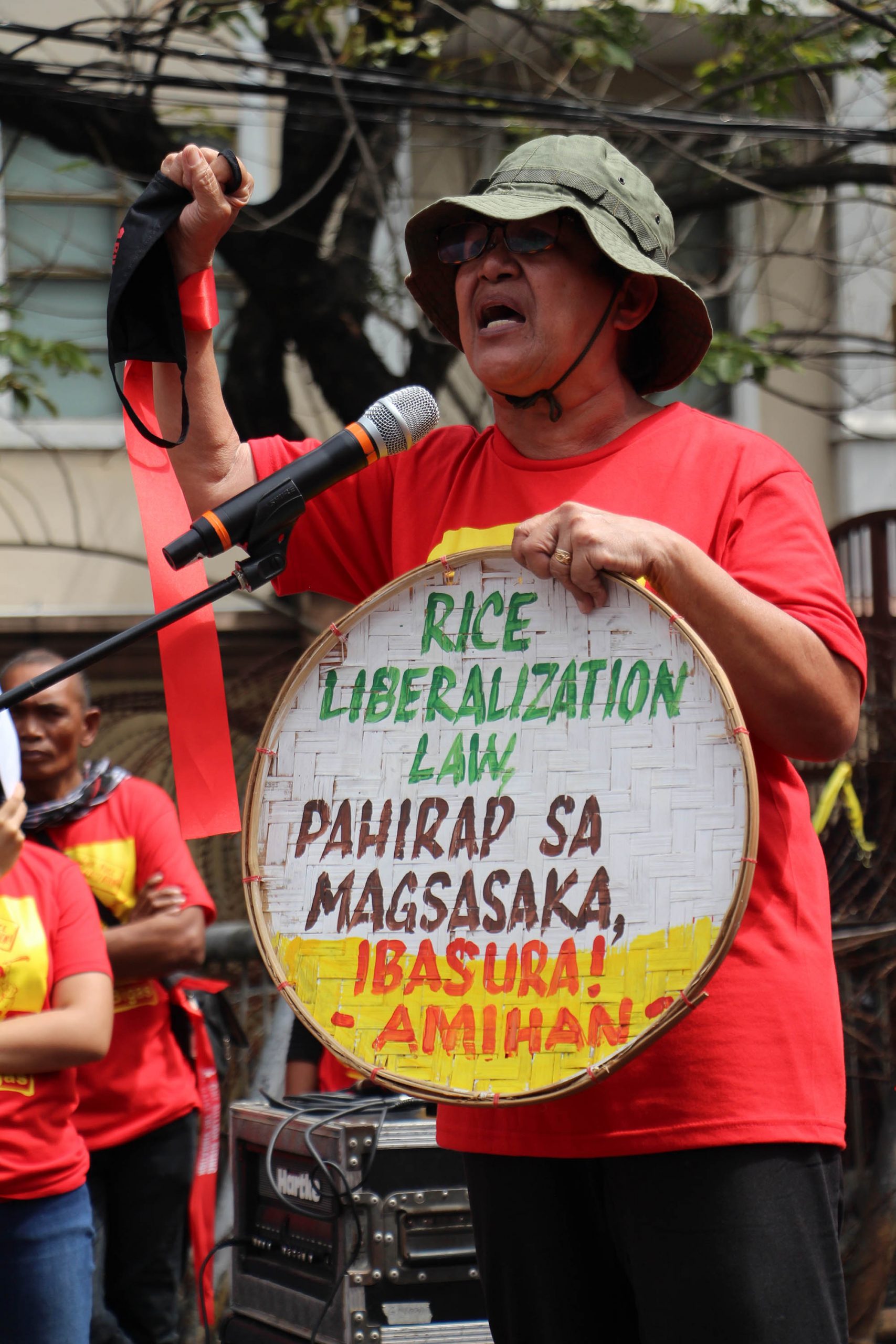“The Department of Agriculture’s Development Framework for Food Security is built on the same old principle of market-driven and neoliberal policies which over the years has proven to be damaging to the country’s agriculture sector and food security,” Amihan secretary general and Bantay Bigas spokesperson Cathy Estavillo said.
“Ang pagkalugi ng mga magsasaka dahil sa Rice Liberalization Law o RA 11203 ay nagpalala sa kakayahan ng pamilyang magsasaka na makaagapay sa kasalukuyang krisis. Bago pa man ipatupad ang lockdown, lubog na sila sa utang,” Estavillo said.
She added, “The continuing reliance of the government to rice importation created a greater threat on the country’s food security. Instead of pushing for aggressive production support to boost local production and stabilize rice supply, the government quickly approved the importation of additional 300,000 metric tons, raising the country’s total imports to 3 million MT for this year, making us the world’s top rice importer for two consecutive years. Malaking dagok na naman ito sa mga magsasaka dahil pababagsakin nito ang presyo ng palay tulad ng nangyari noong nakaraang taon,”
Estavillo also expressed concern that the country’s dependence on rice imports would boost export prices especially now that the pandemic and drought could affect the global rice supply and demand.
“Limiting the National Food Authority’s functions to buffer stocking is also damaging for consumers especially in this time of crisis. Bihira ang NFA rice sa mga palengke samantalang murang bigas ang hinahanap ngayon ng tao dahil sa kahirapan at kawalan ng hanapbuhay. Habang tumataas naman ang presyo ng commercial na bigas,” Estavillo said.
“The removal of NFA’s regulatory functions resulted to the continuing decline in NFA’s share to the rice stock inventory as compared to commercial and household, making it impossible to influence market prices,” Estavillo added.
Out of the total 2.017 million MT rice inventory as of March 1, 2020, NFA accounted for 15.9 percent or 320,600 MT while commercial and household cover 35.5 and 48.6 percent respectively.
“Para maabot ang tunay na seguridad sa pagkain, mahalaga na ligtas at abot-kaya ito para sa pinakamahihirap na mamamayan. Hindi dapat ipinauubaya sa pribadong sektor ang kontrol sa suplay at presyo ng pangunahin nating pagkain,” Estavillo said.
Amihan and Bantay Bigas reiterated their call to repeal the Rice Liberalization Law and urged the lawmakers in both houses to heed the demands of farmers, consumers and food security advocates and push for pro-farmer and pro-people alternatives to ensure food security based on self-sufficiency and self-reliance.
The groups submitted 50,000 signatures calling for the scrapping of RA 11203 last year to House Speaker Allan Peter Cayetano and Senate President Vicente Sotto III as well as to both Committees on Agriculture and Food.
“We should learn the lesson from the horrors of RLL’s first year implementation and the ongoing pandemic. The Duterte government should end the illusion that genuine food security could be attained through neoliberal policies and make genuine land reform and rice industry development the ‘new normal’,” Estavillo ended. ###

